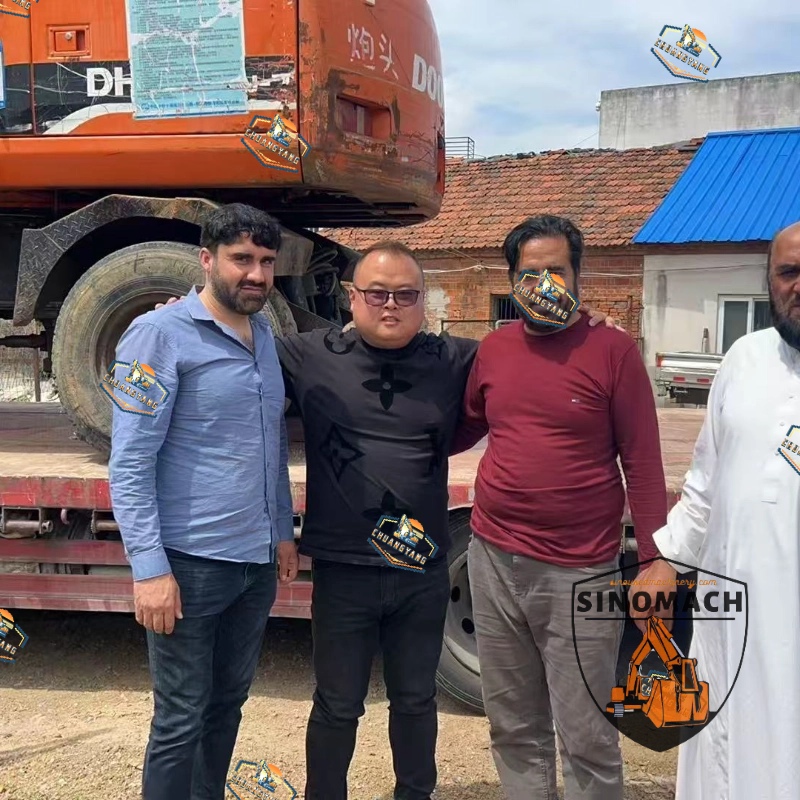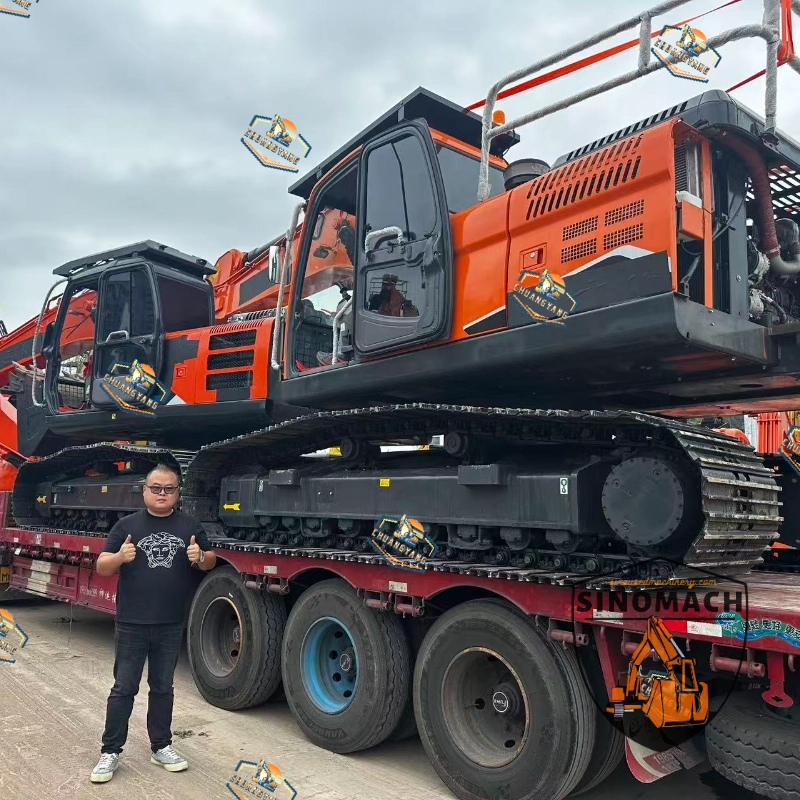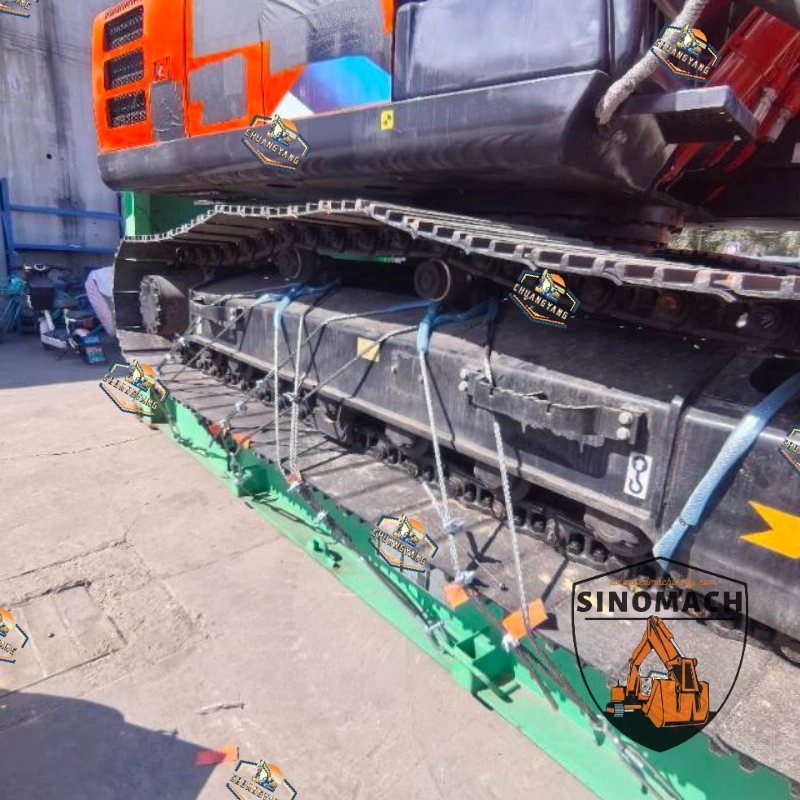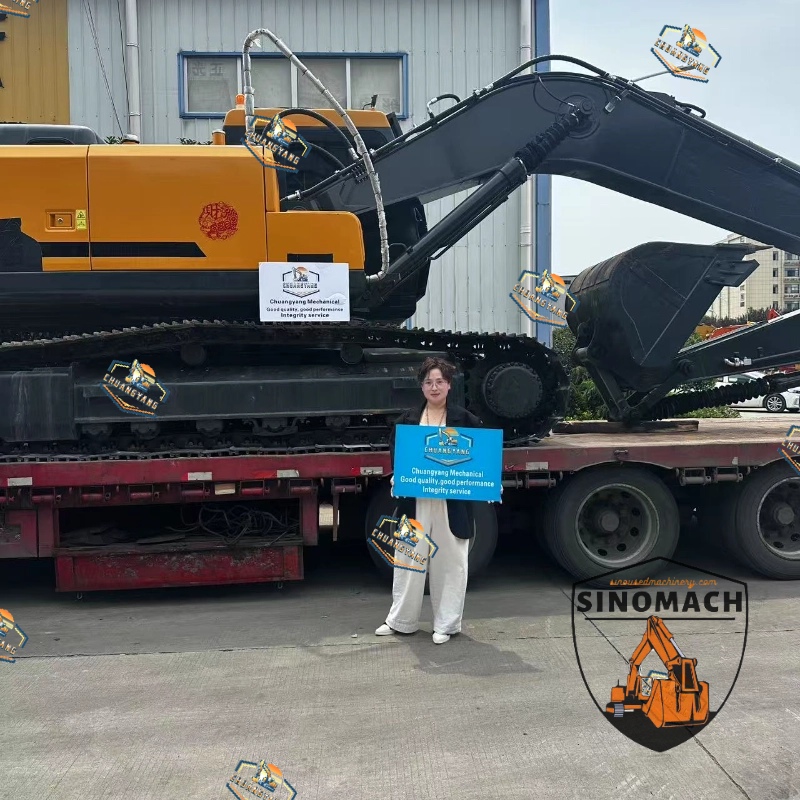Client Background
Ali Hassan leads Construction Company, a Baghdad-based firm focused on rebuilding infrastructure damaged by Iraq’s 2023 floods. In February 2024, his team won a government contract to repair 50km of rural roads in Dhi Qar Governorate—roads that connected 12 villages to food markets. The problem? His two existing excavators were both over 15 years old, and one had broken down during a test run. “The government gave us 4 months to finish the roads—if we missed the deadline, we’d face a $50,000 penalty,” Ali said.

He’d already tried local options: Iraqi used equipment dealers only had excavators with 8,000+ operating hours (too risky for heavy road work), and regional suppliers in Turkey offered leases—“but we need to own the machines,” Ali explained. “Lease payments would eat into our profit, and we’ll need them for future reconstruction projects.”
His biggest concern? Ocean freight. “I’d never ordered equipment from China before—I heard shipping takes months, and customs in Iraq is a nightmare,” he admitted. “A friend of mine ordered a generator from another Chinese supplier last year; it was stuck in Umm Qasr Port for 3 weeks because of missing documents.”
Core Challenges
Extended Ocean Freight: Shipping from Shanghai to Umm Qasr Port (Iraq) takes 35–40 days, plus 7–10 days for Iraqi customs clearance. Total lead time needed to stay under 50 days to avoid project delays.
No On-Site Support: Ali’s team had limited experience with Chinese excavator models—they needed clear, remote guidance to set up and maintain the machines.
Rugged Terrain Adaptation: Dhi Qar’s roads are covered in loose sand and rocky soil; the excavators needed reinforced tracks and heavy-duty buckets (no time for post-delivery modifications locally).

Our Solution: Documented Logistics + Equipment Customization
We started by addressing Ali’s freight fears with end-to-end transparency:
Logistics Plan: We shared a day-by-day timeline, including:
5 days: Equipment inspection + customization
38 days: Ocean freight (Shanghai → Umm Qasr Port)
7 days: Customs clearance (we prepared all required documents—certificate of origin, equipment inspection report, import license support—before shipping)
Total: 50 days (exactly Ali’s deadline for project start)
Equipment Selection & Prep: We recommended two 2018 Sany SY215C used excavators (3,400 operating hours each)—a model known for durability in sandy terrain.
To adapt to Dhi Qar’s conditions:
We replaced standard tracks with reinforced rubber tracks (better grip on sand).
We installed 1.2m-wide heavy-duty buckets (for faster soil removal).
We tested each machine for 8 hours straight in our Shanghai yard, recording video of the tests to share with Ali.
Remote Support: Since we don’t offer local service, we created a tailored support package:
A 20-minute video tutorial (in Arabic and English) on machine setup, daily checks, and troubleshooting.
A dedicated WhatsApp group with our technical team—Ali’s crew could send photos/videos of issues, and we responded within 1 hour.
We shipped a spare parts kit (hydraulic hoses, track pins, filters) with the excavators—enough to cover 6 months of heavy use.
To simplify customs, we partnered with a Baghdad-based customs broker (approved by Iraq’s Ministry of Trade) to handle document submission and port pickup. Ali received daily updates: when the vessel departed Shanghai, when it arrived in Umm Qasr, and when the excavators were cleared for delivery.

On-Schedule Reconstruction, Long-Term Value
On-Time Start: The two Sany excavators reached yard on April 19—50 days after order. Ali’s team followed the video guide to assemble the buckets, checked the hydraulic fluid, and started road work the next day.
Project Success: By June, they’d repaired 30km of roads—ahead of schedule. “The excavators run 10 hours a day, no problems,” Ali said. “The reinforced tracks don’t get stuck in sand like our old machines did. We’ll finish the remaining 20km by July, no penalty.”

Future Collaboration: In July 2024, Ali ordered a third used excavator for a school reconstruction project in Basra. “I used to be scared of ocean freight—now I trust it, because your team controls every step,” he said. “And owning the machines means we can use them for other projects next year—no more lease stress.”
“People told me ‘buy local to avoid shipping delays,’” Ali added. “But local equipment was either too old or too expensive. Your Chinese used excavators gave us quality and value—even with the wait.”

